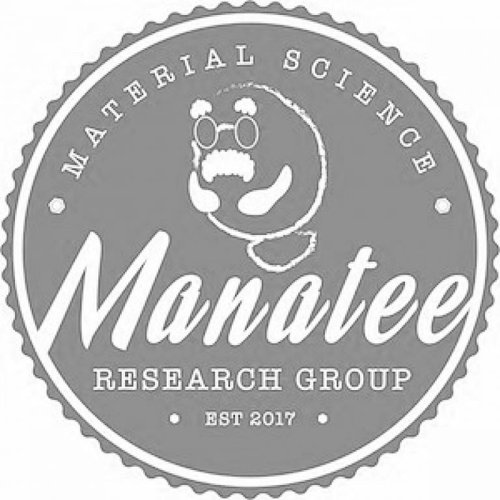Role of Heterogeneity in Manganese and Nickel Rich Precipitate Distribution on Hardening of Reactor Pressure Vessel Steels: Integrated Modeling and Experimental Characterization
2022-2026
DOE NEUP funds us to understand hardening in reactor pressure vessel (PRV) steels caused by Mn-Ni rich precipitates (MNPs) via integrated multiscale modeling and experiments. The project aims to: i) quantify MNP distribution during nucleation, growth, and coarsening using AKMC simulations; ii) elucidate mechanisms behind MNP related hardening; and iii) advance modeling capability to predict hardening and embrittlement of PRV steels and account for heterogeneity in MNP distribution. This project is a collaboration with University of Wisconsin-Madison and Los Alamos National Laboratory.
Understanding Constituent Redistribution, Thermal Transport, and Fission Gas Behavior in U-Zr Annular Fuel Without a Sodium Bond
2023-2026
DOE NEUP funds us to determine the reason for the distinct constituent redistribution in annular U-Zr fuel without a sodium bond and how it changes the fission gas behavior and thermal conductivity. The project aims to develop and validate BISON models for: i) constituent redistribution in annular U-Zr; ii) mechanistic fission gas release model; and iii) thermal conductivity model for annular U-Zr fuels. This project is led by UF in collaboration with INL and TerraPower.
Mechanisms of Irradiation-Induced Grain Subdivision
2023-2026
DOE BES funds us to determine the mechanisms governing irradiation-induced grain subdivision in metal and ceramics. There is debate on whether IIGS results from subgrain formation that forms low angle grain boundaries (LAGBs) or from recrystallization that forms high angle grain boundaries (HAGBs). We will combine ion irradiation and characterization experiments with atomistic simulation and mesoscale modeling to quantify the formation of LAGBs from dislocation networks. This project is a collaboration between three UF PIs.
2023-2028
Consortium for Nuclear Forensics
NNSA funds us to advance the analytical tools for nuclear forensics investigations by developing new techniques and advancing the current methods used to analyze nuclear materials. The project aims to: i) develop a new and robust characterization sequence for micro-to-nanoscale characterization of actinide materials that will provide 3D understanding of the U and Pu-bearing materials; and ii) fill the gap in developing morphological nuclear forensics signatures by combining new ML algorithms with data-driven sequential experimental design. The project is led by UF and is a collaboration with 15 universities and 7 national laboratories.
Projects Closed In
-
Coupling of Modeling and Experiment to Develop Predictive Models of the Mechanical Behavior of Nuclear Fuels and Materials.
INL funded us to conduct mechanical properties testing of nuclear fuels and materials using in-situ micromechanical testing in scanning electron microscope (SEM). Project run from 2017-2018.
-
Bridging the length scales on mechanical property evaluation.
The project was funded by DOE NEUP to bridge the length scale between macro and micro scale mechanical testing of unirradiated and irradiated metals. Project run from 2019-2022.
Facilitating MARMOT Modeling of Radiation Phenomena in U-Pu-Zr fuels through experiments (MORPH).
This project was funded by NSUF to increase fundamental understanding of irradiation-induced metallic U-Pu-Zr fuel behavior and to obtain data needed for the development of irradiation models for metallic fuels in MARMOT. Project run from 2019-2022.
3D characterization of nuclear fuels.
ORNL funded to develop a quantitative three-dimensional (3D) atomic scale characterization methodology for irradiated nuclear fuels. Project run from 2020-2022.
-
A novel framework for controlling strain in 2D/3D heterostructures.
UF research funded us to develop a fundamental framework for inducing remotely switchable, dynamic, and controllable strain in 2D materials. Project run from 2021-2023.
-
Investigation of microstructural development in irradiated U-Mo fuels
INL funded us to investigate the behavior of irradiated U-Mo and U3Si2 fuels. The project aimed to: i) conduct in-depth analysis of fission-induced recrystallization and porosity distribution in these irradiated fuels; ii) develop procedures for image analysis; and iii) use machine learning (ML) algorithms to examine the behavior of irradiated fuels. This project was sponsored by the U.S. Department of Energy (DOE), Office of Material Management and Minimization (MMM), National Nuclear Security Administration (NNSA). Project run from 2017-2024.
-
Establishing defect-property relationships for 2D-nanomaterials
DOE BES funded us to provide insight into the evolution of non-equilibrium concentration of defects in two-dimensional nanomaterials (2DNMs). The main goals of the project were to: i) tailor defect configurations and defect densities in 2DNMs using irradiation, ii) use defects to control physical properties of 2DNMs, and ii) investigate self-healing mechanisms in low dimensional materials. This project was an early career award and run from 2018-2025.
Thermal Conductivity Measurement of Irradiated Metallic Fuel Using TREAT
DOE NEUP funded us to determine irradiated U-Pu-Zr fuel thermal conductivity and thermal diffusivity using an innovative thermal wave technique. The project aimed to: i) measure thermophysical properties of irradiated U-Pu-Zr fuels using TREAT; and ii) characterize the microstructure of U-Pu-Zr fuels before and after transient and link the microstructure to fuel properties. This project was led by University of Pittsburgh and was a collaboration with UF and INL. Project run from 2019-2025.
High-fidelity modeling of fuel-to-coolant thermomechanical transport behaviors under transient conditions
DOE NEUP funded us to develop a high-fidelity modeling tool that can capture some of the important phenomena in high burnup UO2 and accident tolerant fuels (ATF) during transient conditions. The project aimed to: i) modify BISON and FAST codes to improve the ability to model thermomechanical transport behavior in ATF and high burnup fuels; ii) couple TRACE/BISON and TRACE/FAST and validate against TREAT LOCA experimental data; and iii) model uncertainty quantification for future applications. This project was led by UF in collaboration with INL and Nuclear Regulatory Commission. Project run from 2021-2024.
Science-based development of ASTM standard tests for graphite-based fuel pebbles
DOE NEUP funded us to establish a science-based protocol to quantify fuel pebble degradation in extreme reactor environments. The project aimed to test and standardize mechanical property assessment of tristructural-isotropic (TRISO) fuel pebbles and work towards establishing NQA-1 quality assurance program. This project was led by University of California-Berkeley and was a collaboration with UF, Oak Ridge National Laboratory, and X-Energy. Project run from 2022-2024.
